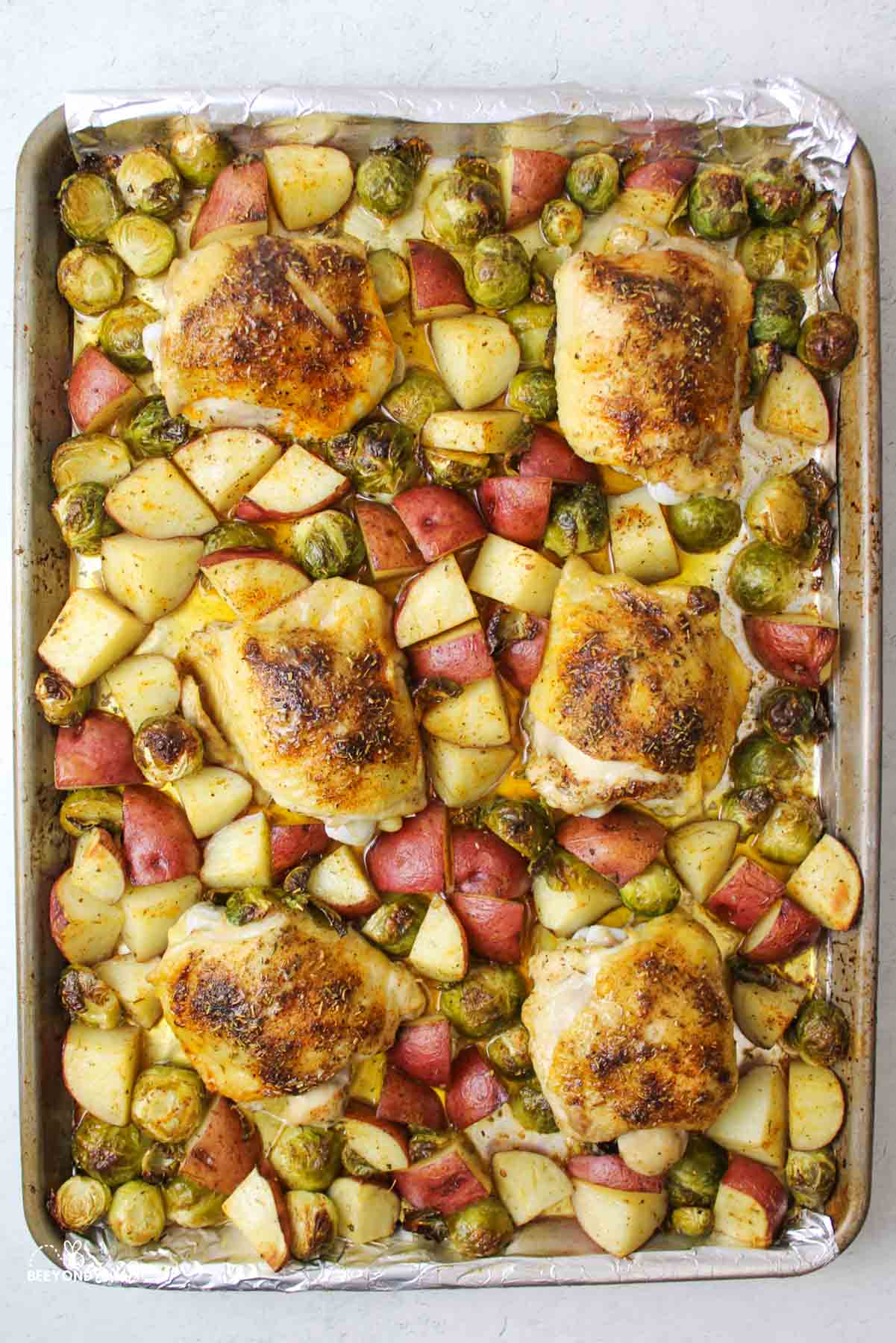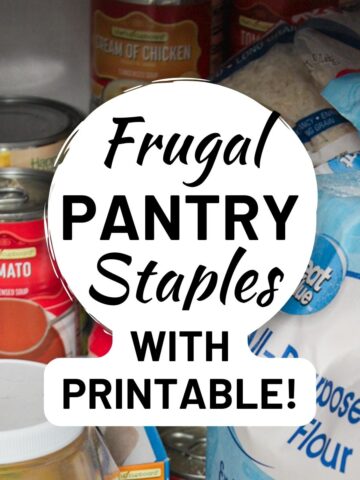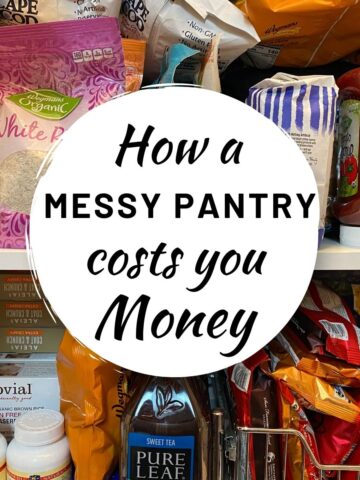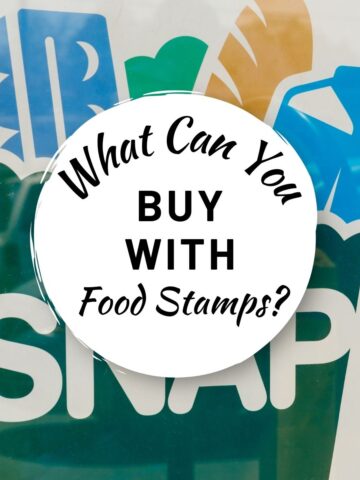If you need to save money quickly and see actual results this is the post for you. A no-spend challenge is a great way to save money, broaden your horizons and get creative.
You can set short-term goals and achieve them fast using this budget method.

Jump to:
What is a No Spend Challenge?
A no-spend challenge is a short-term goal-setting process to keep from unnecessary spending in an attempt to save money and be more frugal and thoughtful with your purchases.
Some people use certain months as a no-spend theme such as no spend January or No spend November, but you can do this challenge any month of the year or even for just a week at a time if desired.
How does it work?
Set a goal, in which you want to accomplish within a month. No spend challenges are often done in one of 3 lengths of time. Either a no-spend weekend, a no-spend week, or a no-spend month, where you have 30 days to not spend any money outside of normal utilities and bills.
If your goal is to save X amount of money, write down the goal somewhere that you can be reminded of it every day. Then as the challenge progresses, you will see your reminder and stay on target to follow through without spending money.
By cutting out costs during the month, you save money and can reach your goals fairly quickly. It's a pretty fun way to save up for something big. You can also do it out of necessity if you can't afford that much food.
Note that this is different from a Clean Out the Pantry Challenge where you're only goal is to try and use up the food currently in the house in order to save money by not overshopping or eating out. See: How a Messy Pantry Costs You Money

No Spend Month Rules
Of course, it wouldn't be a real challenge without rules and guidelines. Generally, the rules are fairly simple and pretty straight forward.
Here are some common rules people set for their no-spend challenges.
- No spending money on anything that isn't absolutely necessary. If it can wait until next month, you don't need it this month.
- Avoid shopping at stores as much as you can (you may not be able to avoid it entirely though)
- You can't eat out, this includes restaurants and fast food
- Find a free alternative to Uber and Lyft
- Don't stop for the morning coffee. Make your own at home like Maple Syrup Iced Coffee or Vanilla Iced Latte.
- No spending money on haircuts
- Don't buy new clothes
- No getting manicures or pedicures if it costs money
- Shopping online is out of the question
- Bar hopping is also out
- Eat from the pantry, fridge, and freezer as much as possible to avoid buying new food. Get creative with leftovers. See: How to Reuse Leftover Food
- Set a budget for what you will allow being spent this month on pre-determined expenses like gas, food and other essentials.
What Can I Buy?
It's almost impossible to go without spending ANYTHING all month, especially if you have normal living expenses like most adults. So what are you allowed to spend money on during a challenge?
Exceptions to the rules:
- Mortgage/Rent
- Utilities
- Cell phones
- Netflix, Hulu, or Amazon Prime video subscriptions that are already in place
- Cable/Satellite
- Health Expenses
- Sinking funds (if you have them)
- Diapers, wipes, or other baby expenses (babies can't help that they need these things)
- Gas to get to/from work
- Any other "fixed expense" that you pay monthly or have set on a subscription-based plan that you can't avoid.
It's important to note that during your no-spend, you will make your own rules and exceptions.
No one knows your situation better than you, so while you may take note of what others do, the decision on what is or isn't allowed is ultimately your decision to make.
Customizing
I shared the general no spend challenge rules that are usually set in place for these challenges but this is YOUR challenge. You get to make all of the rules. So what are they? Do you have any exceptions to these rules?
Take note of things like birthdays and holidays if they are happening during the challenge period because you want to be able to do something on those days and not feel like you broke a rule.
Write down your rules, and have them posted somewhere to remind you.
Motivation, Why Do the Challenge?
Are you looking to save money for something specific? Or are you trying to save money in general? Perhaps you just want to try this challenge and see if you can do it. (It is a bit harder than it looks).
Set a goal
It works great when you have an actual goal in mind. Something to look forward to and keep you motivated.
If you don't have a goal and just want to try the challenge for the fun, try to consider this:
Make a monthly budget with your current income and expenses. How much money is left over after bills? Do you think you can cut out any of those bills in a short period of time and have an even larger nest of money in your pocket? (paying off a small balance credit card, for example).
If you do, that's great. Make that number your goal for this process so you can try your hardest to work towards it! Or figure something to do with that much money.
If you are paying off debt, how much of an impact can that have? Saving up for a vacation could make a difference too!

How Long to Keep Going
Are you going to start small with a stay home, no-spend weekend or try to go straight for the gold with a month-long challenge?
I really recommend starting small if you're new to this, but if you think you can do it, go for it!
No Spend Weekend
If you find yourself going out every week and looking for activities for the family or yourself only to wind up spending too much money, this one could get you started on the right money-saving track!
Consider looking for free family activities to do during this challenge. Things from baking a dessert with items already in the house, homemade playdough like Banana Playdough or Coffee Playdough, or going on a walk.
No Spend Week
This short-term challenge helps to get you aware of your spending impulses and put a freeze on bad money habits.
Going a week without ordering lunch or coffee can help to open your eyes to your spending habits.
It may even inspire you to make your own favorite coffees at home like Caramel Iced Coffee or Iced White Chocolate Mocha.
You'll find that cheaper sandwiches like Microwave Grilled Cheese, Air Fryer Tuna Melts, Frozen Peanut Butter and Jelly Sandwiches, and Grilled Fluffernutters are affordable lunch options when you don't want to buy pricey lunch meats.
No Spend Month
The no spend monthly challenge is not one to be taken by the faint of heart, it's for people who are really invested in the challenge. A lot of people will try and fail, and it could be a few times before you have a single successful month. But the rewards are so much greater!
Just like with all things in life, the greater the risk the better the rewards.
No Spend Month Tips
- Plan frugal activities to keep you busy
- Use this time to perform a pantry challenge and eat the food in your house so you don't spend as much at the grocery store.
- Post your goals and rules somewhere where you can see it every day
- Talk to your family and friends about the challenge so you have accountability
- Remain positive
- Deep clean and de-clutter your house. Sanitize everything if it's close to flu season. See: How a Messy Pantry Costs You Money
- Unlink your debit/credit cards from online merchants
- Take note of your shopping triggers and avoid them
- Meal plan - here are some great Tips for Meal Planning on a Tight Budget
- Use the cash envelope system so you can avoid using debit/credit cards at all.
- Keep a list of free activities that you can do when you need to get out of the house and feel active. (You won't feel motivated to continue if you stay shut-in your home all month!)
- If you need to grocery shop, and impulse purchases are a weakness of yours try this tip- Order your groceries online. Even just doing a ship to store option is a great way to only buy the exact items that you need and not anything that you don't.

Use a Cash Envelope System
First, what is the envelope system?
The envelope system is a form of budgeting made famous by Dave Ramsey. It's when you take cash and place it into designated envelopes and only use it for that purpose.
For instance, if you budget $40 for gas and $200 for groceries, they each get their own envelopes and you stay mindful to only use that cash amount and not pull money from another area.
This helps you to stay within your budget because research shows you will pay more attention to cash leaving your hand as opposed to using a debit or credit card.
How the envelope system can help you:
To go an entire month without spending money and avoiding grocery stores, you'll eventually run out of milk, eggs, fresh produce, and other basic house staples.
Setting aside a specific amount of cash per week to spend on replenishing these items allows you to continue eating, gives you a chance to get out of the house a few times, and lets you still cut down on your normal grocery expenses.
You can DIY cash envelopes with actual cash and envelopes if it helps or you can keep a handy record in a notebook. I keep my entire life planned out in spreadsheets (I've got one for everything) and I have a few different bank accounts thanks to USAA, so all of my envelopes and notes are kept digital for less clutter and easier access no matter where I am.
Alternatives to Paying Cash
If you have any unused gift cards lying around, use them during the challenge to avoid using your own cash. It's better to spend a grocery gift card to Walmart with only a few dollars on it than it is to spend your own hard-earned money during the challenge.
The purpose is to save you money, so use up those awkwardly balanced gift cards you have laying around and make more space in your wallet.
Alternatively, if your gift cards are to a place you don't even shop at, or plan to shop at you can sell them for extra money. Using websites like the Raise app can help you to get rid of those gift cards and make money. I use this site a few times a year, and it's really great!
You can also use this time to find all of the loose change in your couches and car. Next time you enter the grocery store stop at the big green change counter and have it turned into a receipt for grocery store credit.
Do your shopping as planned and use that to pay for it. If your expense is more than the receipt, pay the difference, if your expenses are less, you'll get cashback. Yes, the machine does take a percentage of the money, but getting store credit takes the least percentage of all the options and the change wasn't helping anybody just lying around.

Things to Remember
Keep a record of all of your spending triggers and progress during this challenge. Write down if you have a slip-up, and include possible ways to avoid these in the future.
Remember that the no-spend challenges are a learning experience and think of every mistake in a positive way. No one is perfect at everything on their first try.
You can still go out with your friends, grab a drink and have fun, but budget for it first and stay within budget. Go for a cheaper menu item and order water instead of a pricey drink. You don't have to stay home and binge-watch your latest tv obsession unless you want to.
Stock up in advance
If you know that during this no-spend time frame that you will no doubt need to shop for dog food, toothpaste, or some other item, stock up in advance. See: How to Stockpile Food On a Budget and Frugal Pantry Staples to Keep on Hand (with Printable!).
The goal is to stop you from entering the store, where you can avoid impulse buys and other eye-catching budget busters. Shopping is okay to do during the challenge, but the less you have to do it, the better off you'll feel about staying motivated.
Use up odds and ends
Use up any travel sized items that you may have laying around. If you collect those little shampoos and soaps from hotels, use them up and avoid buying yourself new full-sized products. Even if you travel cheaply, this is a good way to get your money's worth from that little vacation!
Doing this helps you in 2 ways. 1.) It helps to declutter your home. You now have fewer things to store. 2.) Soaps and shampoos have expiration dates/best by dates too, and it's a use it or lose it situation. Might as well use it.
Declutter and Make Money
While your challenge is all about saving money, there is nothing against the idea of making some extra money. So why not have a yard sale or sell things online?
Deep cleaning your home, organizing and planning a yard sale can help you to stay busy for a week or more, plus you get money. It's like a win-win.
If you don't have any signs or means to make signs for the yard sale, consider offering to allow another family or friend to join you in the sale. Multi-family yard sales do great! Have them bring the signs and you can find another way to contribute to the event.





Comments
No Comments